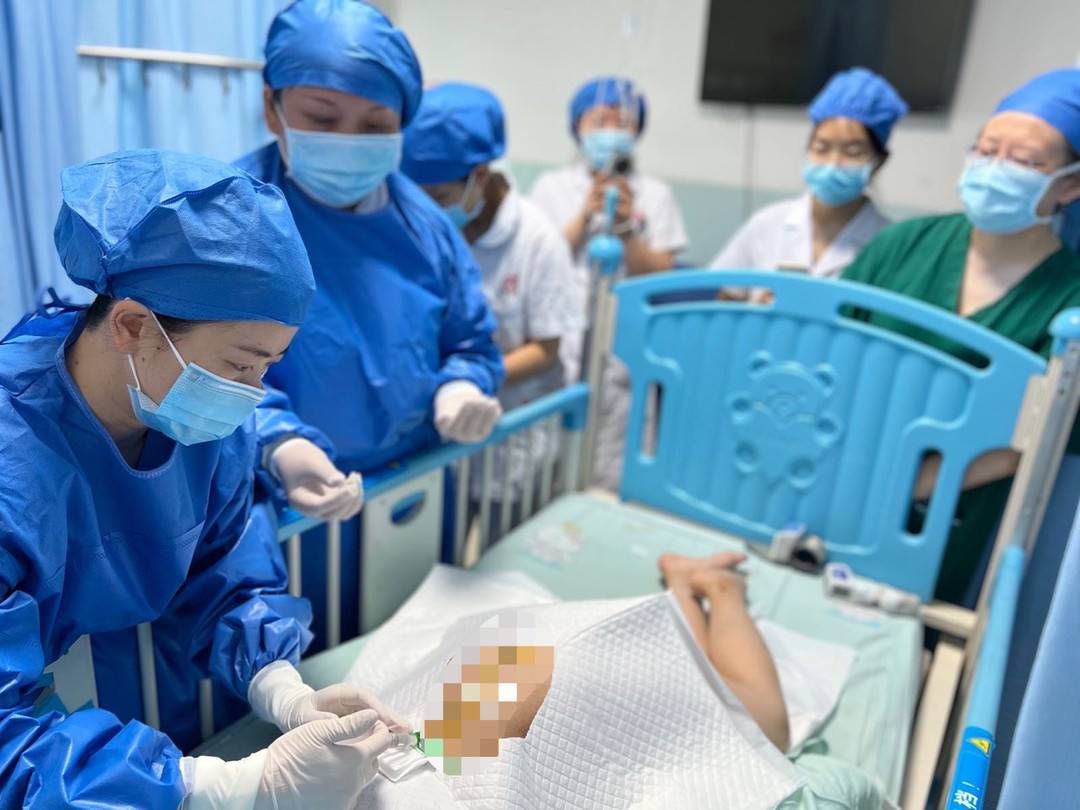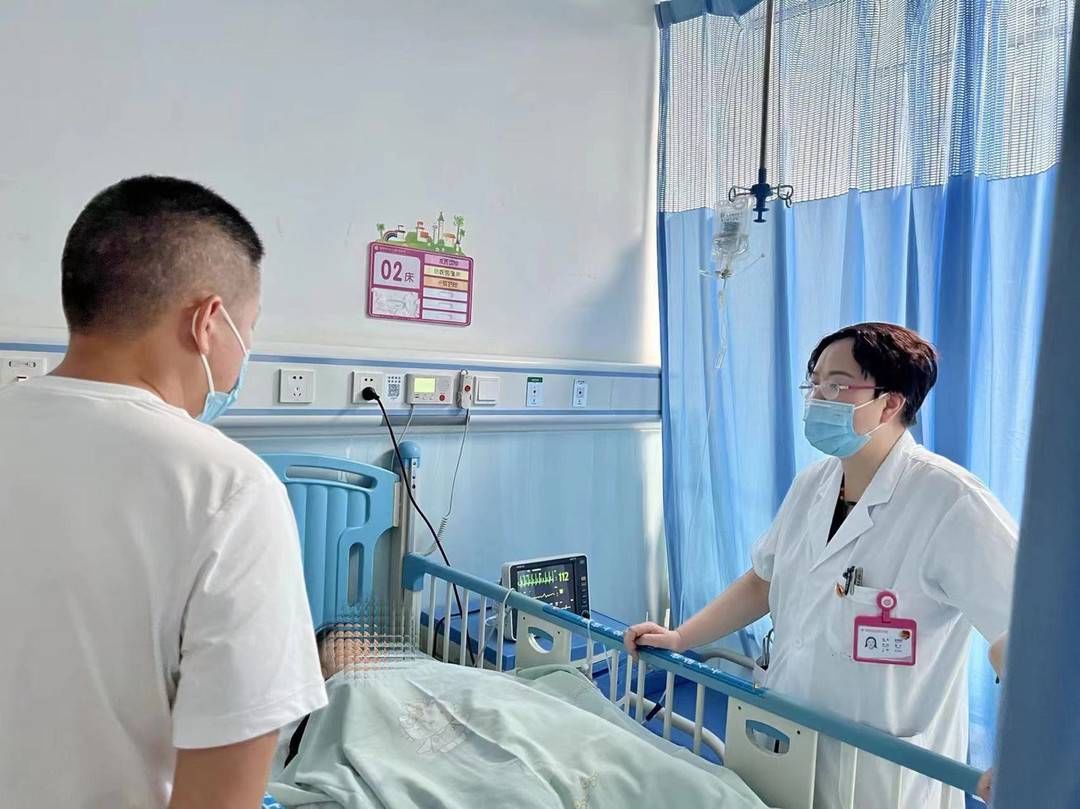Cover reporter Zhou Jiayi
On July 13, experts from the Children’s Gastroenterology Department of Chengdu Women and Children’s Central Hospital “relocated” the faeces of healthy people after deep washing to the 7-year-old children’s feces. In Fei (pseudonym)’s intestine, endoscopic implantation and perfusion transplantation to wash bacteria were used to solve the girl’s constipation for 7 years. This is a treatment method called “fecal bacteria transplantation”, which is also used for the first time in the field of pediatrics in Kawauchi.

In 2015, the birth of Feifei (pseudonym) brought a surprise to the whole family, but accidents followed one after another. Shortly after the birth, the parents found that the child could not pull out Baba and had long-term constipation, so they took the child to seek medical advice, but no relief was found. Have you considered megacolon in the local hospital? Colon verbosity? In 2018, I visited the Department of Pediatrics of Chengdu Women and Children’s Central Hospital. After patiently asking about the medical history and physical examination, the surgeon ruled out Hirschsprung’s colon, considering the existence of a long colon, but there is no indication for surgery. In the gastroenterology department, the doctor comprehensively asked about the disease process, growth and development history and physical examination and found that after Feifeisheng, defecation was delayed. , you can’t play with your friends. Combined with the consultation and evaluation of the hospital’s rehabilitation department, in addition to delayed defecation, the child has motor developmental delay at the same time, and it is necessary to be alert to genetic metabolic diseases. After a multidisciplinary joint consultation, the series of examinations for digestive specialists and hereditary metabolic diseases were improved. Feifei was found to have fecal flora imbalance and abnormal metabolites. He decided to give symptomatic support, exercise rehabilitation, traditional rehabilitation and other treatments plus gastroenterology specialist treatment. Feifei can gradually lift heavy objects, play and run with his friends, and often go to square dances with his grandmother, but the child’s defecation delay continues and cannot be separated from the drug treatment. The intestinal flora is sequenced again, indicating abnormal flora.
After reviewing the literature and consultation and discussion, experts from the Children’s Gastroenterology Department decided to use the “ancient and advanced” treatment method – “fecal bacteria transplantation” to improve Feifei’s stubborn constipation. After deep washing, the flora is “relocated” to the patient’s intestine, improving the patient’s intestinal microecology and treating diseases inside and outside the intestine. With trust in Chengdu Women and Children’s Central Hospital, after careful consideration, the parents agreed to fecal bacteria transplantation, hoping to treat Feifei’s stubborn constipation by improving the intestinal microecology.

Fecal transplant – a special kind of “organ transplant”< /span>
Can fecal bacteria also be transplanted? It sounds very “profound”. In fact, there are records of using feces as a treatment method in ancient Chinese “Materia Medica Mengquan”, “Compendium of Materia Medica”, and “Kaibao Materia Medica”. For the “Huanglong Decoction” to treat diseases. In modern medicine, fecal microbiota transplantation in 2012 was defined as a special kind of organ transplantation. In 2013, the use of fecal microbiota transplantation for the treatment of recurrent Clostridium difficile infection was first written into a medical guideline, affirming the effectiveness of fecal microbiota transplantation in the treatment of difficult gastrointestinal diseases. At present, a large number of literatures have reported that bacterial flora transplantation is used for the treatment of intractable constipation in adults and children.

Fecal transplantation has been used to treat many childhood diseases
At present, more and more large medical centers and digestive centers have begun the clinical application of fecal bacteria transplantation. Fecal transplantation can be used to treat a variety of childhood gastrointestinal and extraintestinal diseases, such as Clostridium difficile infection, antibiotic-associated diarrhea, refractory intestinal allergy, inflammatory bowel disease, irritable bowel syndrome, autism, obesity, etc.
The Children’s Gastroenterology Department of Chengdu Women’s and Children’s Central Hospital, as the leading department of children’s digestive system in the province, takes “children’s fecal bacteria transplantation” as the hard-core technology of the hospital’s “14th Five-Year Plan”. After preparations such as subject demonstration research, process sorting, material preparation, and surgical simulation, on July 13, 2022, the first endoscopic intestinal tube implantation and washing flora perfusion transplantation in the pediatric field were successfully completed in Sichuan.
“Children’s fecal bacteria transplantation” has extremely strict requirements. Standardized washing bacteria must be used, and the donor must come from a “one-in-a-thousand” healthy donor. Truly ensure the safety of transplantation from the source and ensure the safety of patients. “Only a professional team, safe and standardized washing bacteria, and standardized operating procedures can ensure the safety and effectiveness of children’s fecal bacteria transplantation, and the risks are controllable.”
In the future, Chengdu Women and Children’s Central Hospital will strive to become a The National Children’s Regional Center for Detergent Bacteria Transplantation will further carry out clinical applications to benefit children with difficult diseases in the province and the western region.
【If you have news clues, welcome to report to us. Once adopted, you will be paid a fee. Newsletter WeChat Follow: ihxdsb, Newsletter QQ: 3386405712]